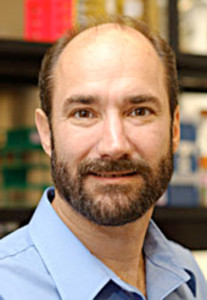
Stanford will collaborate with the Salk Institute for Biological Studies to lead a new Center for Excellence in Stem Cell Genomics starting this spring, in an initiative backed by a $40 million grant from the California Institute for Regenerative Medicine.
Professor of Genetics Michael Snyder and Salk Institute professor Joseph Ecker will lead the new institute, which will apply the grant towards three main areas of research–cardiovascular disease, single-cell mapping and computational networking of genes.
Nearly half the grant, or $19 million, will be applied toward promoting collaborative efforts with partner institutions–including UC-Santa Cruz, UC-San Diego, the Scripps Research Institute and Illumina, Inc.–with regards to research technology and findings.
“We’re bringing together the best experts in each field,” Snyder said, noting that Stanford has particular expertise in genomics, DNA sequencing and genetics to contribute.
Snyder himself will lead the cardiovascular project, while other Stanford professors will also contribute to the collaboration. Reflecting on the collective endeavor, Snyder noted that stem cell research has advanced rapidly in recent years.
“In the four and a half years I have been at Stanford, stem cell research has taken off like a shot,” he reflected.
While the new center is still taking shape, Snyder and Ecker have a history of collaboration, having shared a lab at Stanford earlier in their academic careers.
“We know each other from our days at Stanford in the biochemistry department,” Ecker confirmed. “We worked together as post-doc fellows in Ron David’s lab.”
Though participating institutions will work on unique individual projects, Ecker, who will head the collaborative effort, expressed optimism that individual labs will share information and findings with each other–and with the broader research community.
“A center project aids the center, but also beyond the center, it bolsters genomic research throughout California,” Ecker observed.
Snyder emphasized the opportunities for principle investigators, graduate students and undergraduates from Stanford to work at the new center.
“We have amazing students,” said Snyder. “I love the culture at Stanford, it’s inventive and people think crazy ideas.”
Contact Katherine Carr at kcarr2 ‘at’ stanford ‘dot’ edu.